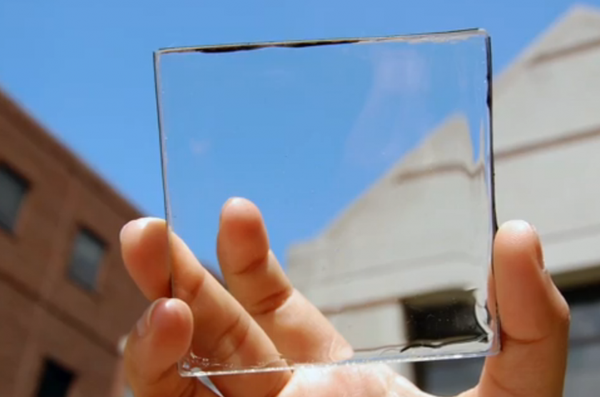Ubiquitous Energy, a Massachusetts Institute of Technology (MIT) startup company, announced on April 22, Wednesday, that its new fully transparent solar panel will hit the market soon. It is based on solar cell technology that can transform any window or glass screen into a power source.
Over a decade ago in August 2014, scientists at Michigan State University created a solar device that was fully transparent. Other so-called "transparent" solar cells are not truly as such.
Richard Lunt, who was leading the research team then, claimed that the solar panels could be used in many settings. Those included "tall buildings" and mobile devices such as cellphones.
Lunt was one of the co-founders of Ubiquitous Energy. His company's solar cell only collects part of the light spectrum that is invisible to humans.
Based on the laws of physics, a truly "transparent" solar panel cannot exist. A solar cell's job is to absorb sunlight and convert it into electricity. However, a transparent solar cell lets all of the light pass through it, according to Extreme Tech.
The Michigan State researchers applied a somewhat different method for collecting sunlight. They used something called a transparent luminescent solar concentrator (TLSC).
The TLSC contains organic salts that absorb certain invisible light, which they glow as another invisible light's wavelength. That light is directed to plastic where standard solar cells convert it into electricity.
The guided light turns into black strips on the edges of the plastic. However, the vast majority of the new solar panel is transparent.
The TLSC's efficiency is now an unimpressive 1 percent. However, when the product is available commercially, 10 percent efficiency will likely be possible.
The maximum efficiency of non-transparent LSCs is about 7 percent. The difference could be major on a bigger scale, such as each window in a house or office building.
Lunt says that his company's invention uses solar energy that users do "not...know" is there, according to Daily Mail. It could be used in both mobile devices and tall buildings, for example.
Ubiquitous Energy believes that its TLSC products will not only be more low-key and attractive than current solar panels. They will also be more affordable.



























